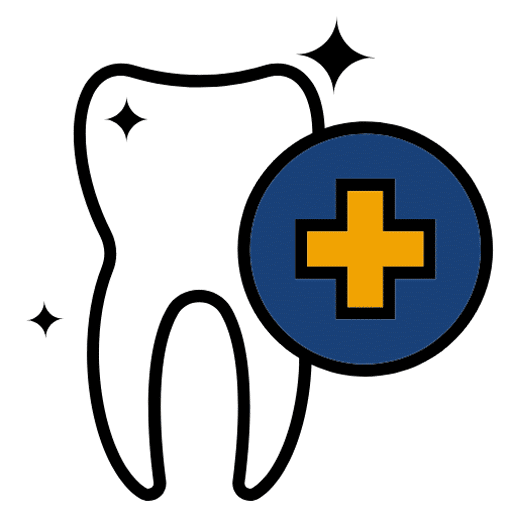Becoming a dental assistant isn’t just about working in a clean, professional setting or being part of a fast-growing field—it’s about mastering a unique set of skills that make a real impact on patient care. If you’re considering enrolling in a dental assistant program in Houston, you’re probably wondering: What exactly will I learn? The short answer: a lot more than you might expect.
1. Foundational Knowledge: Dental Anatomy and Terminology
Before you pick up any instruments or assist in real procedures, your training starts with the basics: understanding the structure of the mouth, teeth, gums, and jaw.
You’ll cover:
- Dental and oral anatomy
- Common dental diseases and conditions
- Medical and dental terminology
- Head and neck structure
This foundational knowledge will help you communicate effectively with dentists and patients and recognize common oral health issues.
2. Chairside Assisting Techniques
One of the most hands-on parts of your job as a dental assistant will be supporting the dentist during procedures. Programs in Houston offer detailed training on how to assist effectively in both general and specialty dental settings.
Expect to learn:
- Instrument passing and tray setup
- Four-handed dentistry techniques
- Patient positioning and comfort
- Suctioning and moisture control
- Pre- and post-operative instructions
You’ll likely practice many of these techniques in mock clinics or simulated environments before working with real patients.
3. Dental Radiography (X-Ray Training)
Nearly every dental assistant in Texas must be proficient in taking and processing dental x-rays. Most Houston programs include this as a core module—and some prepare you for the Texas State Board of Dental Examiners Radiology Certification.
Training topics include:
- Safety protocols and radiation protection
- Proper positioning and image capture
- Digital vs. traditional film x-rays
- Radiograph evaluation and charting
Once you complete this part of the program, you’ll feel confident capturing the high-quality images needed for accurate diagnosis and treatment planning.
🔍 Find the Right Dental Assistant Program
We’ve researched the top dental assistant programs in Houston—featuring flexible schedules, accelerated formats, and hands-on training. Whether you’re looking for day, evening, or weekend classes, we’ll help you find the right fit to launch your career.
4. Infection Control and Sterilization Procedures
Maintaining a sterile environment is non-negotiable in any dental office. You’ll be trained in OSHA standards, proper disinfection protocols, and universal precautions that protect both patients and staff.
You’ll learn:
- Hand hygiene and personal protective equipment (PPE)
- Handling and sterilizing instruments
- Cleaning and disinfecting operatories
- Biohazard and sharps disposal
This section of the curriculum ensures that you’ll be ready to help prevent the spread of infections and uphold the highest standards of patient safety.
5. Front Office Administration and Patient Communication
Dental assistants in Houston are often cross-trained to help out at the front desk, especially in smaller offices. That means you’ll need skills in both clinical and clerical areas.
Many programs cover:
- Appointment scheduling and software usage
- Billing and insurance basics
- Managing patient records and HIPAA compliance
- Professional communication and conflict resolution
Soft skills like empathy, active listening, and professionalism also come into play—these can make or break a patient’s experience.
6. Hands-On Labs and Clinical Externships
Most programs in Houston blend in-person lab work with online lectures or hybrid instruction. Labs allow you to practice using real dental equipment, often in a simulated or working dental office.
Expect to:
- Practice clinical skills under supervision
- Use real tools and learn proper ergonomics
- Complete a set number of clinical hours (often 40+)
- Engage with real patients during externship placement
Externships often serve as stepping stones to employment and provide networking opportunities within local dental offices.
7. CPR and Emergency Protocols
You’ll also become certified in Basic Life Support (BLS), often through the American Heart Association. CPR and emergency training ensure you’re prepared for any medical emergencies that might occur during a dental visit.
Skills may include:
Managing dental emergencies like fainting, allergic reactions, or bleeding
Performing CPR on adults and children
Using an automated external defibrillator (AED)
8. Specialty Skills: Pediatric, Orthodontic, and Oral Surgery Assisting
While core dental assisting skills apply across the board, many Houston programs expose you to assisting in specialty areas, especially during your externship.
You might learn:
- How to assist in orthodontic banding and adjustments
- Pediatric-specific communication and behavioral strategies
- Surgical instrument setup and post-op patient care
This kind of exposure helps broaden your employment opportunities and prepares you to work in a range of settings.
9. Test Preparation and Certification Support
Most dental assisting schools in Houston prepare you for the Texas Registered Dental Assistant (RDA) certification exam and include the cost of the exam or prep courses in the tuition. Some programs also prepare students for national exams like the DANB Radiology or Infection Control certifications.
Support may include:
Help understanding renewal and continuing education requirements
Study guides and mock exams
Application support for licensing
State jurisprudence exam preparation
